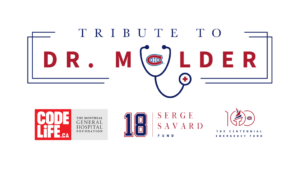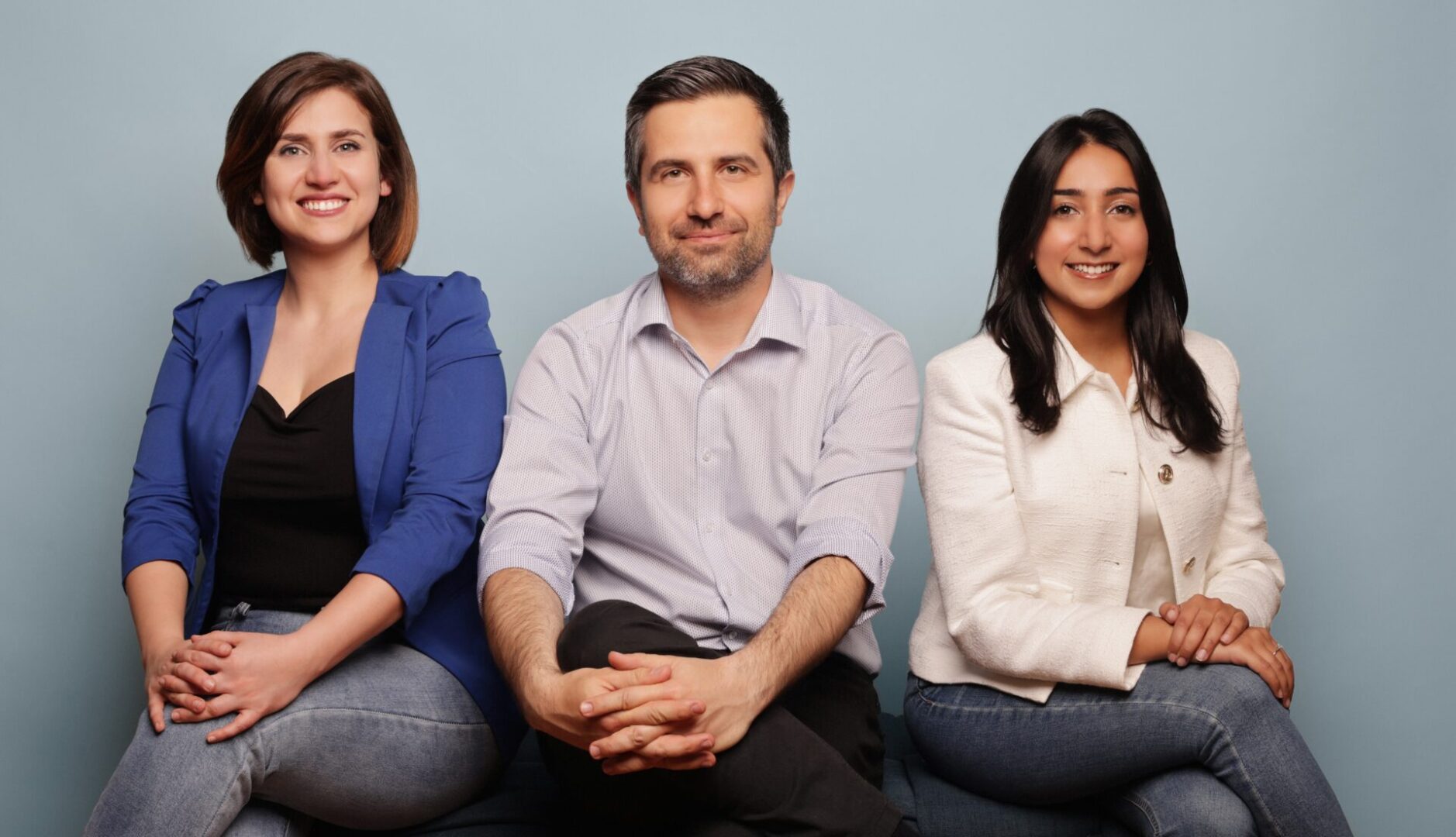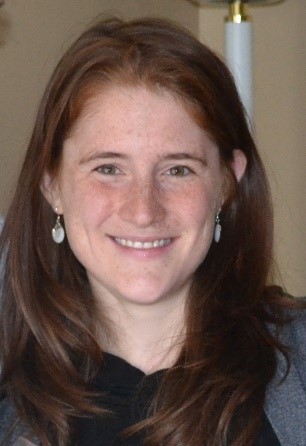Hockey Doc: Stories on Fifty Years of Medical Care to the Montreal Canadiens

In sixty years as a team physician for the Montréal Canadiens, Dr. David Mulder has treated injuries ranging from the minor to the life-threatening, compiling anecdotes about Habs luminaries along the way. He shares this history in Hockey Doc: Stories on Fifty Years of Care to the Montréal Canadiens (Friesen Press, 2021), co-written with Dr Douglas Kinnear, the Habs’ chief physician from 1961-1999, who passed away in 2019. Mulder was newly arrived from Saskatchewan for his surgery residency at the Montreal General Hospital when he began accompanying Kinnear as his assistant in 1963, eventually taking over as chief physician when Kinnear hung up his stethoscope.
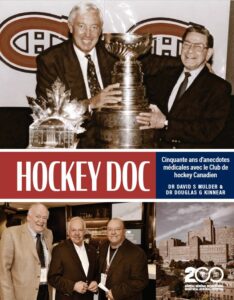
ulder shares his commentaries on the wide range of injuries sustained by hockey players, including a dramatic recounting of the evening in 2000 when, in a game against, the Philadelphia Flyers, Habs forward Trent McCleary received a puck in the neck, fracturing his larynx. “The injury closed off his airway and he was in the process of dying when we intervened. And so we held his airway open and got him to the MGH,” says Mulder. “We alerted the operating room to be ready for a tracheotomy so we went right there from the Bell Centre. I guess that was the closest I’ve ever come to someone dying.” But there were other serious injuries, from Leapin’ Lou Fontinato’s broken neck to Max Pacioretty’s broken back, from Serge Savard’s and Larry Robinson’s broken legs to Yvan Cournoyer’s and Henri Richard’s fractured feet.
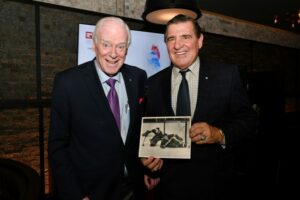
But the role of the hockey doctor extends beyond the rink to caring for players’ families and to non-hockey maladies. When Saku Koivu developed a cancer, he received the diagnosis from Dr. Mulder, who, along with the cancer team, followed Koivu through the successful treatment. Koivu would travel to Sherbrooke for PET scans that monitored the progress of his treatment, and, after being told that Montreal had no such thing because the technology was so expensive, he led fundraising to enable the MGH to purchase its own PET scan equipment. Some other injuries had similar medical impacts; for instance, Pacioretty’s back injury indirectly led to the MGH getting state-of-the-art MRI technology.
Further, the work of Drs. Kinnear and Mulder has also changed how the NHL manages injuries. McCleary’s near-death experience prompted the creation of an NHL protocol for airway injuries and led to new seating arrangements for the medical team. “We used to be way up in the stands but after the McCleary injury the NHL mandated that doctors be right behind the bench, and 25 to 50 feet from the clinic area to deal with life threatening emergencies,” says Mulder.
The hockey docs came to know many players well, but Dr. Mulder singles out Jean Beliveau as the player with whom he and Dr. Kinnear enjoyed an especially close relationship. “Jean would sometimes help us in dealing with other players’ injuries,” Dr. Mulder recalls. “In one incident, Habs tough guy John Ferguson was knocked out in a fight. I was worried that he had a concussion and was treated trying to keep him out of the game.” Ferguson disagreed and wasn’t taking his doctor’s orders lightly. “Jean Beliveau said ‘Doc, don’t fight with him, let me deal with it.’ So Jean led Ferguson to the clinic and locked him in, and the team played the rest of the game without him.”
The hockey docs came to know many players well, but Dr. Mulder singles out Jean Beliveau as the player with whom he and Dr. Kinnear enjoyed an especially close relationship. “Jean would sometimes help us in dealing with other players’ injuries,” Dr. Mulder recalls. “In one incident, Habs tough guy John Ferguson was knocked out in a fight. I was worried that he had a concussion and was treated trying to keep him out of the game.” Ferguson disagreed and wasn’t taking his doctor’s orders lightly. “Jean Beliveau said ‘Doc, don’t fight with him, let me deal with it.’ So Jean led Ferguson to the clinic and locked him in, and the team played the rest of the game without him.”
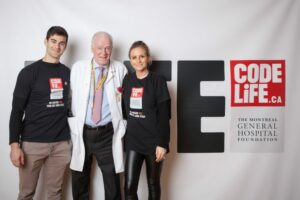
Les Drs Kinnear et Mulder sont tous deux entrés dans l’organisation des Canadiens par l’entremise de l’Hôpital général de Montréal, qui, comme le note Dr Mulder, entretient depuis longtemps une étroite relation avec l’équipe. « Le fait que l’hôpital était situé à proximité du Forum de Montréal [le foyer des Canadiens avant le Centre Bell] a joué un rôle déterminant dans le développement de ce lien spécial que les deux organisations ont aujourd’hui, remarque David Mulder. Quand j’étais résident, je me souviens que [le défenseur intronisé au Temple de la renommée] Doug Harvey avait marché du Forum jusqu’à l’urgence avec le nez cassé. Nous l’avons traité, puis il est retourné finir la partie. » Cette proximité a aussi fait en sorte que des médecins de l’HGM se sont retrouvés dans l’équipe médicale officielle des Canadiens.
Both Drs. Kinnear and Mulder came to the Habs via the Montreal General Hospital, and Dr. Mulder notes that the MGH has long enjoyed a close relationship to the team. “The proximity of the old Western Division of the MGH to the Montreal Forum [the Habs’ home before Bell Centre] was key in developing the special relationship the two organizations now have,” says Mulder. “When I was a resident I remember [Hall-of-Fame defenceman] Doug Harvey walking from the Forum to the emergency room with a broken nose. We fixed it and he walked back to join the game.” That proximity also led to MGH physicians serving as team physicians, and while Mulder’s highest profile work may be on – or adjacent to – the ice, he has had distinguished career at the MGH. “I owe everything to the MGH, which provided me with outstanding surgical training led by giants like Dr. Rocke Robertson and Dr. Fraser Gurd. I’m indebted to them for advising me to consider trauma care and to arrange for special training for two years at the University of Iowa, where I completed training in cardiac and thoracic surgery. And I’m grateful to them for recruiting me back to the MGH,” he says. “I started as a junior surgeon in 1969 and have had a exciting career ever since.” Part of that career involved playing a key role in establishing Quebec’s early care trauma system in 1993. “Before our system went into place, the mortality rates for trauma patients with multiple serious injuries was over 50%,” he says. “We established trauma centers in three locations in Québec – one of them at the MGH – and reduced the mortality rate so that it’s probably around 6% now.” The MGH’s trauma centre was formally renamed the Dr. David S. Mulder Trauma Centre in 2015 in recognition of the central role he has played in advancing trauma care. “Next I’d like to see the hospital get a helicopter port, which would greatly facilitate our role as a trauma center,” he says. “That would be a major enhancement.”
Over the years Mulder has served as the MGH’s Surgeon-in-Chief, head of McGill’s Department of Surgery and Director of the Division of Cardiovascular and Thoracic Surgery; he has been President of the Trauma Association of Canada, the American Association for the Surgery of Trauma, the International Trauma Group, and the NHL Team Physicians Society. He was named to the Order of Canada in 1997 in recognition of his achievements in trauma care. In November 2021, he received an honorary doctorate from the University of Saskatchewan, where he did his undergraduate studies.
And, of course, there has been the hockey. “I think back to the early days when just Dr. Kinnear and I looked after the players. Now we have a team of trauma and orthopedic surgeons, sports medicine physicians and dentists at each game. The relationship between the MGH and the Canadiens puts us at the leading edge of medical care for the elite athlete and has really been important to both the hospital and the team,” he says. “The hospital has provided care, but the team has given back incredibly in terms of supporting new developments. And that augurs well for the future.”
If you’re interested in the book “Hockey Doc”, buy it by clicking the link below:
Hockey Doc by Dr David S Mulder | The FriesenPress Bookstore
